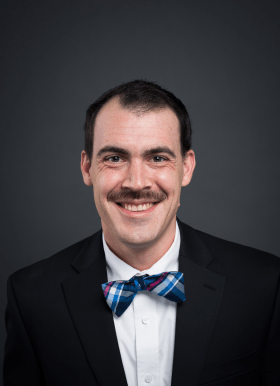
Maxwell Adolphson
Sensing from Deep Space to the Deep Ocean & Everywhere in Between
2023 Optical Engineering Internship at Impossible Sensing
By: Maxwell Adolphson, Y5 PhD Candidate in Electrical Engineering in the McKelvey School of Engineering at Washington University in Saint Louis.

During the summer of 2023 I had the privilege of working as an Optical Engineering Intern at Impossible Sensing. Impossible Sensing is a technology startup company headquartered in South City, Saint Louis. Impossible Sensing works to develop precise and robust, field-deployable spectrometers for applications from the deep oceans to deep space. The company is currently working on proposals aimed at not only Earth’s oceans, but the oceans of Europa, Enceladus and Titan as well. Hoping to gain new insights into the beginning of life on earth and the possibility of life on other worlds, the team is developing new tools for mineralogical and biological analysis.
But, Impossible Sensing does not stop with the oceans, they are simultaneously developing tools to gain unprecedented insights into the presence of organic compounds, biosignatures, water and rare-earth elements on the moon, Mars and other extraterrestrial bodies in our solar system. Instead of collecting other-worldly samples and returning them to Earth for advanced analysis, Impossible Sensing is taking the advanced optical analysis techniques out of the lab and to the moon (literally). The challenge here is taking some of the most advanced sensors developed here on earth into the harshest environments known to humankind.
This is where my work comes in, I worked on the WRANGL3R project which is a system designed to create a 3D mapping of water (in any phase) on the surface and subsurface of the moon. The goal of the WRANGL3R system is to aid in-situ resource utilization (ISRU) on the lunar surface, taking inventory of what lunar resources could supply future missions and settlements on the moon. This platform includes an innovative rover-mounted instrument drill bit that will simultaneously excavate and analyze lunar regolith samples in real-time.
While I learned so much from the team at Impossible Sensing, from optical design to the physics of different spectroscopy techniques, the greatest piece of knowledge I can take from this experience is the confirmation that I chose the right career path. Going through over a decade of schooling as a PhD candidate left me to worry if my passion in the classroom would persist into my career. Not having previous work experience in this field I was unsure. But after my time with the Impossible team I can confidently say, this is what I was meant to do. I think this realization is invaluable to me as a student and wouldn’t have been possible without the team at Impossible Sensing and the Pivot 314 fellowship.